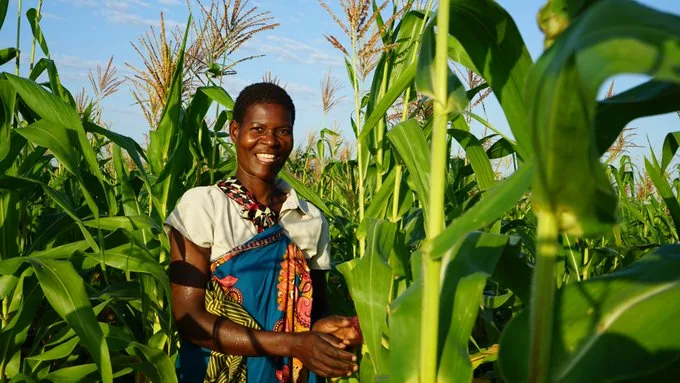|
Getting your Trinity Audio player ready...
|
Stakeholders are gathered in Lusaka, Zambia to deliberate on the Southern African Development Community (SADC) Regional Technical-Level Consultation which is the third in a series of five regional dialogues on the Comprehensive African Agricultural Development Programme (CAADP) Post-Malabo Agenda Process.
When African leaders adopted the Comprehensive Africa Agriculture Development Programme, CAADP, as Africa’s policy framework for agricultural transformation in Maputo, two decades ago, it was with the great vision that this would be the game changer for Africa’s development.
“Two decades later, a series of gains have been made, albeit, not to the extent we would have desired. Following the epic Maputo Declaration, our fathers further re-iterated this vision in the CAADP Malabo Declaration, where they adopted seven bold commitments to accelerate agricultural growth and transformation between 2015 and 2025. These commitments uphold the principles and values of CAADP, aimed to increase investment finance in agriculture, eradicate hunger in Africa by 2025, and reduce poverty by half by 2025 through inclusive agricultural growth and transformation, amongst others. Indeed, the Malabo Declaration expanded the focus, scope, content, goals, targets, and implementation modalities of CAADP,” said Dr. Rudo Makunike, the Head of the Technical Cooperation and Advisory Services, Division of the African Union Development Agency (AUDA-NEPAD) in her opening remarks at the workshop running from 3-5 June 2024 in Zambia.
She said in pursuing the CAADP Malabo Commitments, the continent adopted implementation mechanisms and instruments such as the regional agricultural investment plans (RAIPs) and national (NAIPs) agricultural investment plans. The bi-annual review (BR) has also been sustained as the tool for tracking performance and reporting progress.
Dr Makunike said Africa is at a juncture to spell out actions that will continue to sustain former African leaders’ vision of an agricultural-led development strategy, for the next 10 years. She said the ongoing regional consultations on the Post-Malabo Agenda, to guide this visioning process, are coming after four cycles of the CAADP BR Reports on implementing the Malabo Declaration. The findings of these Reports revealed mixed performance and progress made individually by country and collectively as the continent.
It is barely a year before the end of the Malabo Declaration. Despite notable achievements in several targets, there is still great concern that Member States are not on course to achieving the Malabo commitments.
“This calls for a deeper reflection as we discuss the framing of the post-Malabo Agenda. This calls for the need to do things differently and articulate practical game-changing interventions to support our member states in advancing and Sustaining the CAADP vision birthed by our leaders two decades ago. Let us draw on evidence and lessons learned to craft a robust Post-Malabo agenda.
“We must use the opportunities provided through these consultations to reflect on the overall role of the CAADP Malabo goals and targets and their anchorage with national development plans. We should not shy from asking critical but constructive questions about what makes agriculture-led food systems implementation effective. We should also ask this question because any analysis of what has worked and hasn’t worked must be based on the evidence of what happens at the country level. Are CAADP strategies and implementation support ineffective because they are not anchored in the country’s planning and budgeting cycles?”
In that regard, she urged member states to reflect on the different formats and scenarios for agricultural planning and investment at the country level and called on the establishment of memoranda that provides insights on success factors for national and regional investment planning to detailed programmes.
Dr. Makunike paid tribute to the tremendous work of the African Union institutions, notably the AU RECs and AUDA-NEPAD technical and development partner organizations, in supporting the CAADP principles and values at all levels of implementation.
“As we engage the technical and political processes to set the Agenda for the next 10 years of CAADP, we call on all to reflect on the adequacy of our interventions to address the relevant recommendations from the four BR cycles, including emerging issues of Africa’s and global Agrifood systems transformation.
“In conclusion, I would like to emphasise that the AUDA-NEPAD remains fully committed to the CAADP vision and is fully committed to facilitating the necessary technical and advisory support to the AU RECs and MS to create the requisite environment for translating the Lessons Learnt into Accelerated Action for the Post-Malabo goals and targets.”






